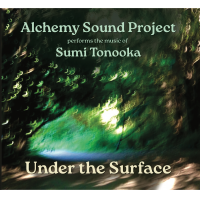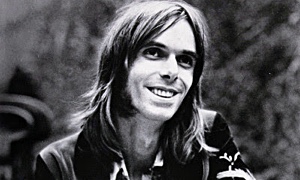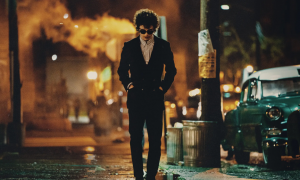Home » Jazz Articles » Film Review » Voice of the Eagle: The Enigma of Robbie Basho
Voice of the Eagle: The Enigma of Robbie Basho
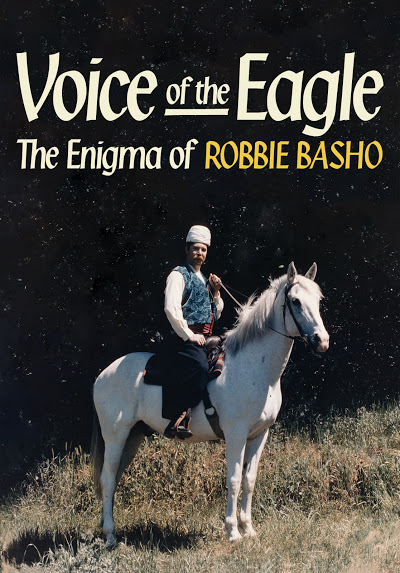 Voice of the Eagle: The Enigma of Robbie Basho
Voice of the Eagle: The Enigma of Robbie Basho A film by Liam Barker
Liam Barker Film Production
2015/2019
Acoustic guitar music wouldn't be the same without the pioneering effort of
John Fahey
guitar, acoustic1939 - 2001

Robbie Basho
guitar and vocals1940 - 1986

Ravi Shankar
sitar1920 - 2012
Basho's life is examined in Liam Barker's documentary Voice of the Eagle: The Enigma of Robbie Basho. Throughout his life, he struggled with mental illness and loneliness, but he found strength in his music, and it's the music that carries the documentary. The musical trajectory is mapped out thoroughly, taking a chronological tour through a discography that includes recordings for Fahey's Takoma label, Vanguard, and the epitome of the acoustic guitar renaissance, Windham Hill. Unfortunately, all the labels Basho recorded for had one thing in common: they couldn't bring him commercial success. Instead, it is tempting to paraphrase the story about Velvet Underground that sold few records in the beginning, but those who picked up the records started a band.
The people Basho influenced included

Will Ackerman
guitarb.1949

Michael Hedges
guitar1953 - 1997

Steffen Basho-Junghans
guitarBasho-Junghans and Will Ackerman both appear in the documentary along other prominent guitarists like Max Ochs, " data-original-title="" title="">Glenn Jones and Pete Townshend. They add insightful comments to the man and the music, but a complete picture of Basho never emerges. As the subtitle suggests, the enigma is kept intact. This doesn't mean that the documentary avoids biographical substance. In fact, Barker has sought out an array of sources that include musicians, friends and musical experts, as well as family relations and people from the Sufi community that Basho belonged to.
Instead of painting a mythological picture, the documentary both brings out Basho's human frailty and his elusiveness without hiding the paradoxes of his life. It is said that Sufism was one of the things that saved him, with a complete surrender to spirituality and rules that included celibacy before marriage, and yet, one also gets a portrait of a person who more than anything needed physical closeness. In other words, Barker does not portray Basho as a Saint, nor does he dwell excessively on the circumstances of his troubled life. Instead, he lays out the facts he finds in all their tangled contradictions while keeping focus on the thing that matters most: the music. Told with poetic sensibility and adding a generous amount of Basho's own guitar and voice, the documentary is most of all a musical portrait of the artist.
A note: During the production of the documentary, Barker uncovered a wealth of previously unreleased music that will be the subject of a 5-CD boxed set titled Song of the Avatars: The Lost Master Tapes. It is scheduled for release in 2020 on Tompkins Square. The movie is also available as a special 3-disc dual format edition, including 410 minutes of extended and deleted interviews, 24-page booklet and digital downloads of three tribute concerts.
Tags
John Fahey
Robbie Basho
Charlie Patton
Ravi Shankar
Will Ackerman
Michael Hedges
Alex De Grassi
Steffen Basho-Junghans
Max Ochs
Glenn Jones
Pete Townshend
Comments
PREVIOUS / NEXT
Support All About Jazz
 All About Jazz has been a pillar of jazz since 1995, championing it as an art form and, more importantly, supporting the musicians who make it. Our enduring commitment has made "AAJ" one of the most culturally important websites of its kind, read by hundreds of thousands of fans, musicians and industry figures every month.
All About Jazz has been a pillar of jazz since 1995, championing it as an art form and, more importantly, supporting the musicians who make it. Our enduring commitment has made "AAJ" one of the most culturally important websites of its kind, read by hundreds of thousands of fans, musicians and industry figures every month.



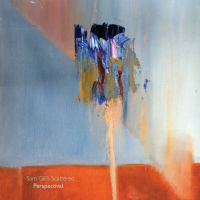

 Buy Now
Buy Now





